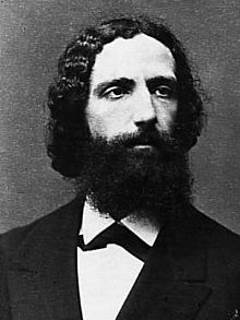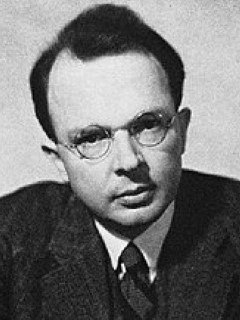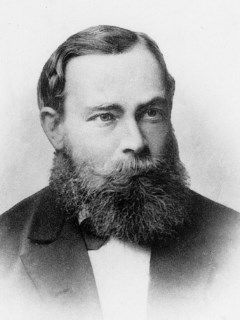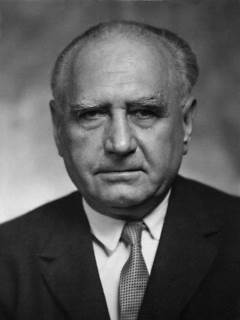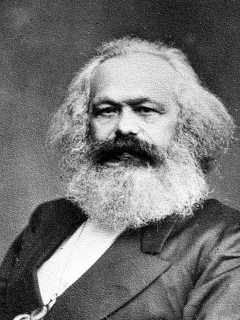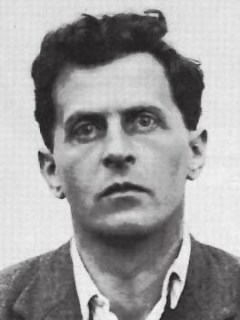Guido Küng
(1995). Two concepts of knowing. In I. Kuuradi & R. S. Cohen (eds.) The concept of knowledge (pp. 3-10). Dordrecht: Springer.
(1993). Ontology and the construction of systems. Synthese, 95 (1), 29-53. https://doi.org/10.1007/BF01064666.
(1993). Phenomenology and Polish scientific philosophy. In F. Coniglione (ed.) Polish scientific philosophy (pp. 59-68). Amsterdam: Rodopi.
(1993). Welterkennen und Textinterpretation bei Roman Ingarden und Nelson Goodman. Grazer Philosophische Studien, 44, 69-90. https://doi.org/10.5840/gps19934434.
(1989). Ajdukiewicz's contribution to the realism/idealism debate. In K. Szaniawski (ed.) The Vienna circle and the Lvov-Warsaw school (pp. 67-85). Dordrecht: Springer.
(1989). Brentano, Husserl und Ingarden über wertende Akte und das Erkennen von Werten. In W. Gombocz (Hrsg.) Traditionen und Perspektiven der analytischen Philosophie (pp. 106-117). Wien: Hölder-Pichler-Tempsky.
(1989). From the editor. Studies in East European Thought, 38 (1), 1-1. https://doi.org/10.1007/BF00838018.
(1985). Der intentionale und der reale Gegenstand. In R. Chisholm, J. C. Marek, J. Blackmore & A. Hübner (Hrsg.) Philosophy of mind, philosophy of psychology/Philosophie des Geistes. Philosophie der Psychologie (pp. 31-43). Wien: Hölder-Pichler-Tempsky.
(1984). The intentional and the real object. Dialectica, 38, 143156.
(1984). The Marxist critique of Rawls. In J. J. O'rourke, T. J. Blakeley & F. Rapp (eds.) Contemporary Marxism (pp. 237-243). Dordrecht: Springer.
(1978). Zur Erkenntnistheorie von Franz Brentano. Grazer Philosophische Studien, 5, 169-181. https://doi.org/10.5840/gps1978528.
(1977). Pouvons-nous connaître les choses telles qu'elles sont ? Freiburger Zeitschrift für Philosophie und Theologie, 24, 397-413.
with Swiderski Edward (1976). Marxism and phenomenology: an international congress in Poland. Studies in East European Thought, 16 (1-2), 113-120. https://doi.org/10.1007/BF00832090.
(1975). Das Noema Als reelles Moment. In P. Bossert (Hrsg.) Phenomenological perspectives (pp. 151-153). Den Haag: Nijhoff.
(1975). The phenomenological reduction as epoche and explication. The Monist, 59, 61-80.
(1975). Zum Lebenswerk von Roman Ingarden: Ontologie, Erkenntnistheorie und Metaphysik. In E. Avé-Lallemant, R. Gladiator & H. Kuhn (Hrsg.) Die Münchener Phänomenologie (pp. 158-173). Den Haag: Nijhoff.
(1972-1973). Husserl on pictures and intentional objects. Review of Metaphysics, 26, 670-680.
(1972). Ingarden on language and ontology. In A. Tymieniecka (ed.) The later Husserl and the idea of phenomenology (pp. 204-217). Dordrecht: Reidel.
(1972). International congress on "die münchner Phaenomenologie". Journal of the British Society for Phenomenology, 3 (1), 106-107.
(1972). Noema und Gegenstand. In R. Haller (Hrsg.) Jenseits von Sein und Nichtsein (pp. 55-62). Graz: Akademische Druck- und Verlagsanstalt.
(1972). The world as noema and as referent. Journal of the British Society for Phenomenology, 3 (1), 15- 26.
(1969). The role of language in phenomenological analysis. American philosophical quarterly, 6, 330-339.
(1968). Language analysis and phenomenological analysis. In L. Gabriel (ed.) Kolloquien (pp. 247-253). Freiburg-Basel-Wien: Herder.
(1968). Language analysis and phenomenological analysis. In L. Gabriel (ed.) Kolloquien (pp. 247-253). Freiburg-Basel-Wien: Herder.
(1967). Ontology and the logistic analysis of language: an enquiry into the contemporary views on universals. Dordrecht: Springer.
(1965). Soviet philosophy and the semantic definition of truth. Studies in East European Thought, 5 (1-2), 51-56. https://doi.org/10.1007/BF01043986.
(1961). Mathematical logic in the Soviet union (1917–1947 and 1947–1957). Studies in East European Thought, 1 (1), 39-43. https://doi.org/10.1007/BF02412996.


